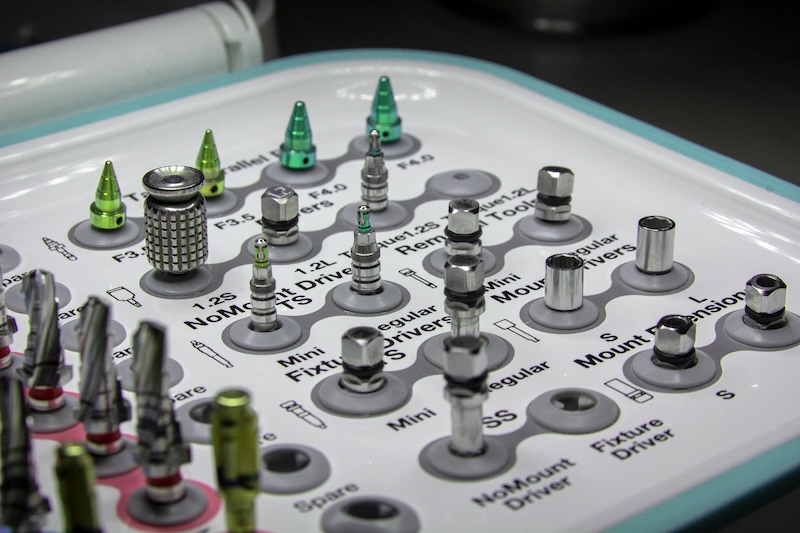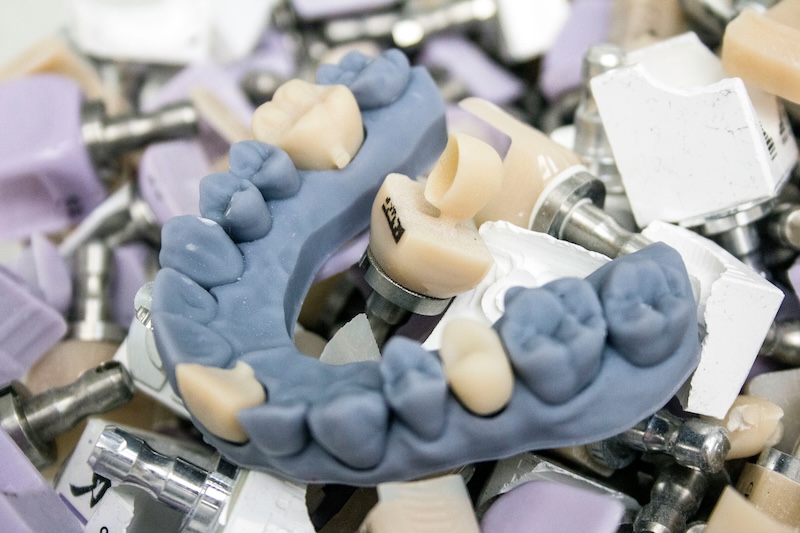Introduction: Titanium revolutionizes dental implants with its unmatched strength and biocompatibility.
Titanium has become the material of choice in dental implants due to its unique properties, offering superior strength, durability, and biocompatibility. As dental implants continue to grow in popularity, titanium plays a crucial role in transforming patient outcomes. But what exactly makes titanium so advantageous in dental implant procedures?
Titanium’s combination of strength, compatibility with human tissue, and resistance to corrosion makes it the ideal material for long-lasting dental implants.
Let’s dive into the reasons why titanium is the go-to material for dental implants and how it contributes to successful dental treatments.

Why Is Titanium Highly Biocompatible for Dental Implants?
Titanium is widely known for its excellent biocompatibility, which allows it to integrate seamlessly with human bone.
• Osseointegration: One of titanium’s standout features is its ability to undergo osseointegration, the process by which the bone grows around the implant, creating a secure bond. This ensures that the implant remains stable and functional over time.
• Low Risk of Rejection: Titanium’s biocompatibility means there is a very low risk of the body rejecting the implant, as it does not trigger an immune response. This significantly reduces the likelihood of complications or failure.
Titanium’s exceptional biocompatibility makes it a safe and reliable choice for dental implants, ensuring long-term success.
How Does Titanium Provide Strength and Durability in Dental Implants?
Titanium is known for its strength, which is essential for dental implants that need to withstand the forces of chewing and speaking.
• High Tensile Strength: Titanium has a high tensile strength, meaning it can endure the pressures placed on it during regular use without bending or breaking.
• Long-Term Durability: Titanium is resistant to wear and tear, corrosion, and tarnishing, making it a durable material for dental implants that can last for many years with minimal maintenance.
The strength and durability of titanium ensure that dental implants remain intact and functional over time, making it an ideal material for high-stress applications.
How Does Titanium’s Corrosion Resistance Benefit Dental Implants?
One of the most significant advantages of titanium in dental implants is its resistance to corrosion.
• Rust-Free Material: Titanium is highly resistant to corrosion, even when exposed to the acidic environment of the mouth. This ensures that the implant will not degrade or compromise the health of surrounding tissues.
• Longevity: Because titanium does not corrode, it can maintain its structural integrity for decades, reducing the need for replacements or adjustments.
Titanium’s corrosion resistance contributes to the longevity and stability of dental implants, providing a long-lasting solution for patients.
How Does Titanium Minimize the Risk of Infection in Dental Implants?
Infections are a major concern in any surgical procedure, but titanium’s properties significantly reduce the risk of complications.
• Antimicrobial Surface: Titanium is naturally resistant to bacterial colonization, which helps reduce the chances of infection around the implant.
• Sterility: The material’s resistance to corrosion and staining ensures that it remains sterile throughout the healing process, contributing to faster recovery times and fewer post-surgery issues.
Titanium’s resistance to bacterial growth and its biocompatibility make it a material that minimizes the risk of infection and enhances the healing process.

How Does Titanium Contribute to a More Comfortable Dental Implant Experience?
Titanium offers comfort not only through its biological compatibility but also by enhancing the overall dental implant experience.
• Lightweight and Strong: Titanium is a lightweight material, making the dental implants feel more natural and less intrusive compared to other metals. This enhances comfort during eating, speaking, and other daily activities.
• Reduced Sensitivity: Because titanium integrates well with bone and surrounding tissues, patients experience less discomfort and sensitivity after the implant procedure.
Titanium’s lightweight nature and superior comfort contribute to a more pleasant experience for patients undergoing dental implant treatments.
Claim: Titanium: The Key to Long-Lasting and Reliable Dental Implants
Titanium’s unique combination of strength, durability, corrosion resistance, and biocompatibility makes it the ideal material for dental implants. It not only ensures the success of the procedure but also enhances the patient’s overall experience by providing long-term, reliable, and comfortable results.
Conclusion: Titanium: The Future of Dental Implants
In conclusion, titanium continues to be the gold standard in dental implant materials, offering unparalleled benefits in terms of strength, compatibility, and longevity. Its ability to integrate seamlessly with bone, resist corrosion, and minimize infection risk makes it the material of choice for successful dental treatments. By choosing titanium for dental implants, patients can enjoy lasting results and a more natural experience.






